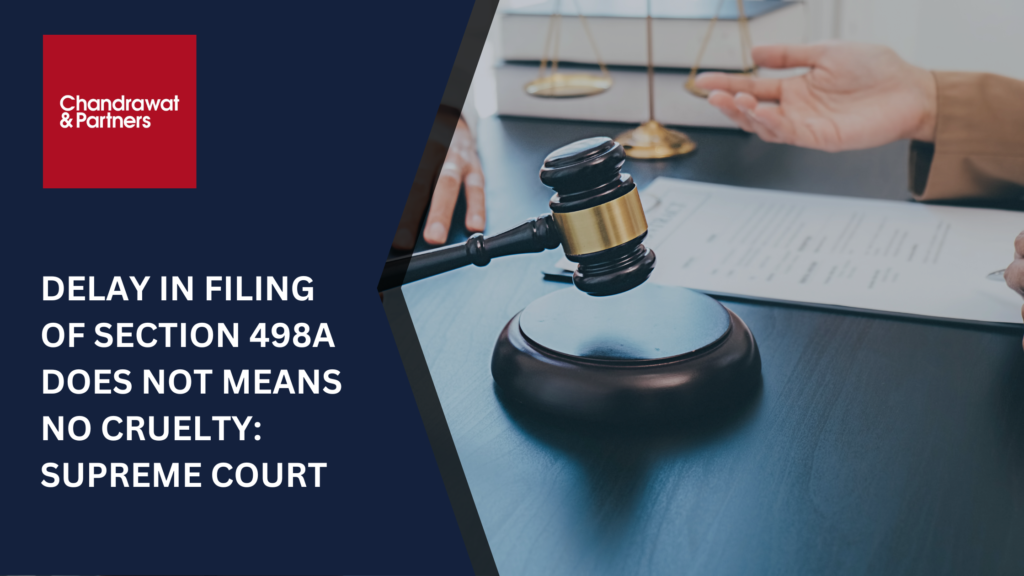Home > Recent Judgements > Delay In Filing Of Section 498a Does Not Means No Cruelty: Supreme Court
DEC 19, 2024
BACKGROUND
The case of Jayedeepsinh Pravinsinh Chavda & Ors. Versus State of Gujarat addresses Section 498A of the Indian Penal Code, 1860 (“IPC”) which was brought in 1983. In order to address the serious problem of married women treated with cruelty by their husbands or family members and their relative. It gives women who are abused physically, emotionally, or mentally-including through dowry harassment-legal redress. The delay in submitting charges under this clause, however, is a controversial topic that frequently becomes a subject of contention in court, with the accused claiming that the delay indicates that there has not been any cruelty.
A similar question, namely whether a continued delay in bringing a complaint under Section 498A IPC disproves the claims of cruelty, was recently brought before the Supreme Court of India. The Supreme Court provided clarification on this controversial matter and issued.
Section 498A IPC – talks about cruelty done to wife whether physically, mentally by the husband and her in laws.
Section 306 IPC – talks about instigating, supporting, and forcing to commit suicide.
KEY ISSUES
- Whether the appellants are the subject of a prima facie case under Section 498A IPC?
- If the appellants’ violations of Sections 306 and 498A of the IPC can be absolved?
JUDGEMENT
The Supreme Court after hearing arguments from both sides and reviewing the available evidence, issued the following ruling:
The Court upheld that the appellants had a prima facie case of cruelty. As the Witness claims included the deceased’s forced return to her parents’ house, the selling of her Streedhan, and physical and psychological abuse. The Court said that to establish a prima facie case, harassment and cruelty as described by Section 498A IPC do not have to be persistent or habitual and on a regular basis.
The Court reaffirmed the rule that the goal at the charge formulation stage is to determine if a prima facie case exists rather than to assess the quality of the evidence.
The Court recognized substance in the appellants’ argument regarding Section 306 IPC, but supported the High Court and Sessions Court’s judgments to draft charges under Section 498A IPC. As a result, the appellants were compelled to stand trial for Section 498A IPC while being released from the offense under Section 306 IPC.
OBSERVATION
The Court emphasized that cruelty under Section 498A encompasses more than just physical acts; it also includes activities that are likely to cause a woman to suffer serious repercussions and mental harassment. The Court rejected the claim that says claims of cruelty are invalidated by the lack of previous complaints. The existence of such activities is not negated by a delay in reporting.
The Court stressed that there must be a clear intention and that the accused must have been directly involved in instigating or assisting the suicide. Even if proven, mere harassment is insufficient to prove aiding and abetting suicide.
The Court explained that determining whether there is sufficient evidence to establish a strong suspicion of guilt is the standard at this point. It is improper to evaluate the evidence in detail; it should be saved for trial.
For more information or queries, please email us at
[email protected]





